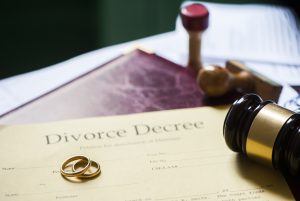Divorce Law: Expert Legal Guides for Navigating Separation in the UK
Our legal guides are written with the participation of its committee of expert lawyers.
Divorce law is a fundamental legal field that governs the process of ending a marriage in the UK. It addresses key aspects such as filing for divorce, dividing marital assets, spousal maintenance, child custody, and visitation rights. The primary aim of divorce law is to provide a fair and equitable resolution for both parties while prioritizing the well-being of any children involved. This area of law adapts to societal and cultural changes, ensuring it remains relevant and reflective of modern family dynamics. It’s essential to note that divorce law in the UK applies to civil marriages and partnerships, with separate provisions for religious or customary unions. By understanding the legal framework, individuals can make informed decisions and navigate this challenging period with clarity and support.
If you’re considering divorce or need professional legal guidance to navigate divorce proceedings, contact our experienced divorce solicitors today.
Get in touch with one of our
divorce specialists
Our top posts
on divorce

Detailed guide for divorce proceedings in the UK
Published on 16/01/2025, by Qredible - Reading time: 10 mins
Before starting your divorce journey, ask yourself: Do you understand the legal requirements, costs, and timelines involved? Are your financial interests protected, and do you know how to avoid common mistakes that could delay your application? The divorce process UK is more streamlined than ever, but preparation is critical to ensure a smooth experience. Whether you're considering a quick divorce UK or tackling complex financial arrangements, having a clear plan, and knowing when to consult a solicitor for divorce, can make all the difference in achieving a fair and efficient resolution.


How long after a divorce can you claim assets?
Published on 08/01/2025, by Qredible - Reading time: 6 mins
A divorce is often an unpleasant experience for everyone involved. No matter how well-intended both individuals are, unmerging your life from someone who was once your "forever" is a challenging, messy, complicated process.


How long after divorce can you claim pension in the UK?
Published on 06/01/2025, by Qredible - Reading time: 5 mins
Yes, pension claims in the UK have no time limit unless you've remarried or have a clean break order, making them one of the few divorce-related financial claims that can be pursued indefinitely.


How to get divorced when my spouse doesn’t want to?
Published on 03/01/2025, by Qredible - Reading time: 6 mins
Under the UK's no-fault divorce system, your spouse cannot stop or prevent the divorce by refusing to participate. The court will proceed with your application even without their cooperation or signature.


How to get an online divorce in the UK?
Published on 02/01/2025, by Qredible - Reading time: 6 mins
When any of us get married, we all hope it will be forever. Sadly, for 42% of marriages in the UK, that turns out not to be the case, with the average length of a marriage for divorced couples lasting just 12 years.


What’s the Difference Between Divorce and Annulment?
Published on 30/12/2024, by Qredible - Reading time: 6 mins
While both end a marriage, annulment declares your marriage was never valid, which can significantly limit your financial and property rights compared to divorce's more protective framework.


What is an annulment of marriage?
Published on 24/12/2024, by Qredible - Reading time: 9 mins
Separation between couples has been on the increase over the years. Unlike before, it has become somewhat easier to bring a marriage to an end now. A marriage can be legally ended in two ways. These methods are annulment and divorce.


What is the difference between decree nisi and decree absolute?
Published on 02/12/2024, by Qredible - Reading time: 6 mins
Divorce proceedings are comprised of many complicated applications and steps. In the United Kingdom, the decree nisi and the decree absolute comprise two of the most critical steps in successfully ending a marriage.


How long does a Decree Nisi take after application?
Published on 29/11/2024, by Qredible - Reading time: 5 mins
On average, expect 8-10 weeks from application to receiving your Decree Nisi, plus a mandatory 6-week waiting period before applying for Decree Absolute. Fast-track options aren't available as these timeframes are legally required under the UK family law.


How much does a divorce cost?
Published on 19/11/2024, by Qredible - Reading time: 5 mins
Recent data shows uncontested divorces average £1,500-£3,000 total, while contested divorces typically cost £14,500+ with some reaching £30,000+. This 5-10x cost difference makes early agreement between parties the single biggest money-saving factor.

The strength of a society is measured by its commitment to justice, safeguarded by its solicitors.
Platon
Find a solicitor
With over 2,000 solicitors listed, find the one best suited to your needs. We will then help you get in touch.
Contact a solicitor
















